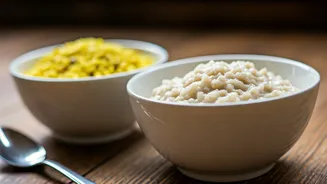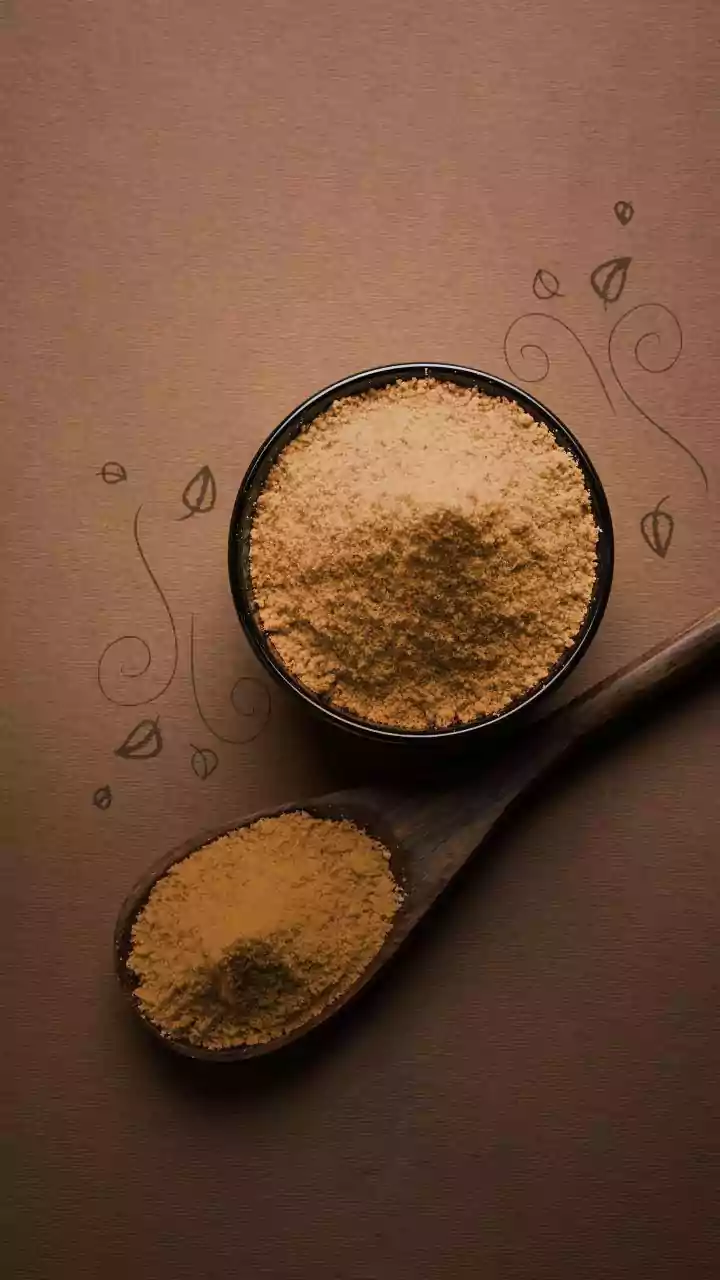Understanding the Contenders
Oats, a breakfast staple globally, are celebrated for their high fiber content, particularly soluble fiber, which aids in lowering cholesterol levels and
promoting heart health. Dalia, also known as broken wheat, is a common breakfast food, especially in India. It is a good source of fiber and provides complex carbohydrates, which release energy slowly, preventing sudden sugar spikes. Both options offer valuable nutrients, but their specific compositions and benefits differ. Assessing these differences is key to making a well-informed breakfast choice, suitable for individual dietary needs and preferences. Ultimately, the 'better' choice depends on a variety of individual factors.
Nutritional Showdown: Fiber
Fiber is a crucial element of a healthy diet, playing a pivotal role in digestion and overall wellness. Oats have a significant fiber content, especially soluble fiber called beta-glucan, which contributes to lower cholesterol levels and reduces the risk of heart disease. Beta-glucan aids in slowing down the absorption of sugar, which is particularly beneficial for managing blood sugar levels. Dalia also boasts a good amount of fiber. The fiber in dalia aids in improving digestion and promoting a feeling of fullness. This can help with weight management by preventing overeating. While both options provide fiber, the type and impact vary, influencing the selection for specific health goals.
Carbohydrate Complexities Explored
The type of carbohydrates present in breakfast choices greatly impacts energy levels. Oats mainly comprise complex carbohydrates, which are digested slowly, providing a steady release of energy and helping to prevent energy crashes. This sustained energy release makes oats a favorable choice for staying active throughout the morning. Dalia also delivers complex carbohydrates, offering a gradual and consistent source of energy. This can contribute to better blood sugar control and keep you feeling satiated for longer. Because both oats and dalia offer slow-digesting carbohydrates, they both provide enduring energy, but individual tolerance and the speed of digestion can differ, influencing preference.
Protein Power Comparison
Protein, essential for building and repairing tissues, is a key consideration when selecting breakfast options. Oats supply a moderate level of protein, contributing to muscle maintenance and satiety. Including protein in breakfast can assist in curbing hunger and supporting weight management. Dalia offers a similar amount of protein, making it an effective choice for individuals looking to boost their protein intake at the start of the day. The protein in dalia adds to the overall nutritional value of the meal, helping in muscle support and general body functions. Both oats and dalia deliver protein, thus contributing to the building blocks of a healthy meal plan.
Micronutrient Profiles
Vitamins and minerals, also known as micronutrients, are vital for various bodily functions. Oats are a source of several essential micronutrients, including iron, magnesium, and zinc. Iron plays a key role in carrying oxygen, whereas magnesium and zinc contribute to many metabolic processes. Dalia also brings essential micronutrients to the table, though the exact levels can vary depending on the type of wheat used. Dalia often contains some B vitamins and minerals like iron. Considering micronutrient content is essential for a well-rounded diet, and the choice between oats and dalia may depend on specific dietary needs, such as iron intake requirements.
Preparation and Practicality
Considering the preparation methods and how the choices fit into a daily routine is significant. Oats are incredibly versatile and can be prepared in various ways: as porridge, in smoothies, or incorporated into baked goods. Their quick preparation time makes them an excellent option for busy mornings. Dalia, commonly cooked as upma or porridge, can also be seasoned with vegetables, adding nutrients and flavor. While it requires cooking, it can be prepared in batches for multiple meals. The cooking method influences the final product. Both oats and dalia present multiple avenues for customization, enabling individuals to create meals that are both healthy and appealing.
Health Benefits Summarized
Both oats and dalia come with substantial health advantages. Oats can improve heart health, owing to their soluble fiber, and may also assist in blood sugar control, making them useful for those with diabetes or aiming for stable energy levels. Dalia aids digestion and is a good option for people seeking to manage their weight, thanks to its high fiber content and ability to enhance satiety. Both can contribute to a balanced diet, offering varied nutrients and aiding overall health. The specific benefits vary based on individual dietary requirements, preferences, and the presence of any health issues. Incorporating either option into a breakfast routine can positively impact well-being.
Making the Right Choice
The decision between oats and dalia ultimately depends on personal needs and preferences. Individuals aiming to lower cholesterol may prefer oats. Those prioritizing digestive health and sustained energy release might favor dalia. Consider personal tastes. If one option is preferred over the other due to flavor, texture, or ease of preparation, this should be considered. Consult a dietitian. If there are specific health concerns or dietary restrictions, consulting a nutritionist or dietitian can provide customized advice and suggest the most suitable choice. The goal is to choose a breakfast that is both nutritious and enjoyable, supporting long-term health and well-being.



















